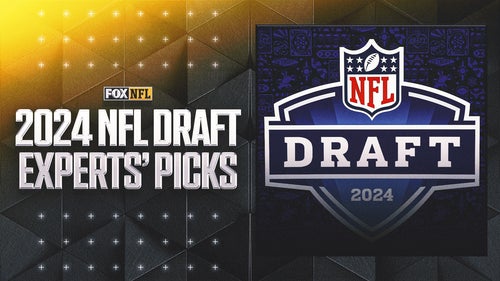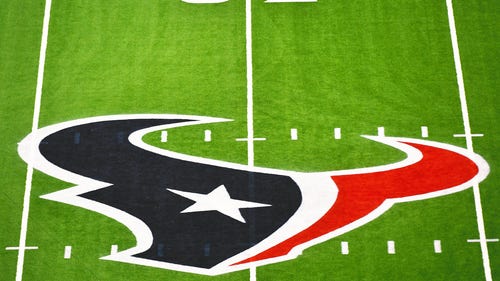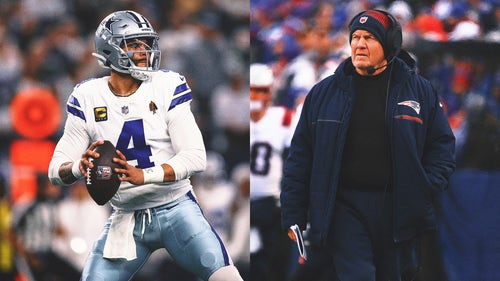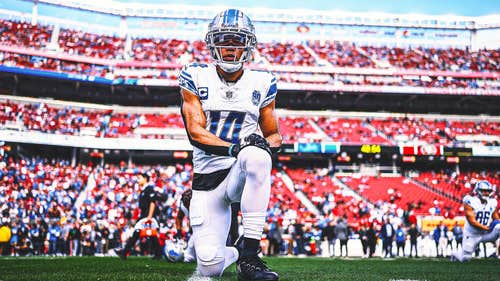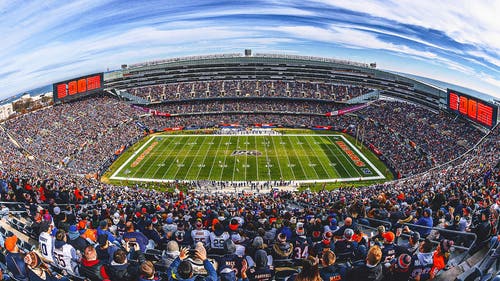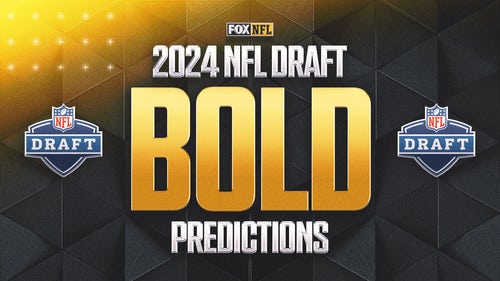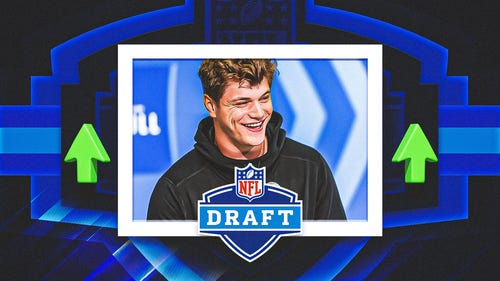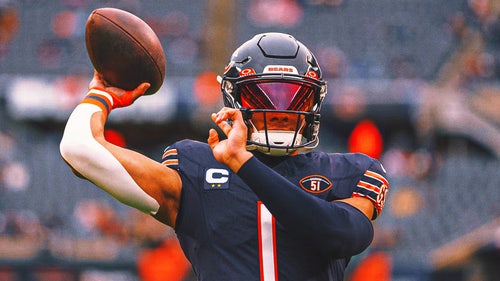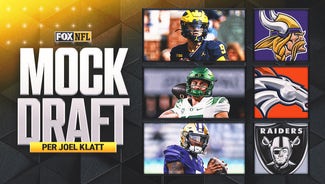
Rules expert Mike Pereira breaks down NFL Week 12 calls
Pick up lines can be funny, crude, flattering and cheesy.
Picking up penalty flags can be questionable, debatable and suspect. Then there are the penalty flags that should get picked up and aren't, but the same three words would apply.
It's always interesting when it comes to decisions whether or not to pick up a flags that get thrown. There is no question that with seven officials on the field you get different angles and officials are encouraged to come in and voice their opinion if they feel an angle may prove something different than what was originally called.
I want to focus on two plays that happened Sunday during Week 12 that came into question — a play in the Carolina-Miami game where the flag was picked up and shouldn't have been in my opinion and a play in the Minnesota-Green Bay game where a flag was thrown, should have been picked up and wasn't.
Play 1: Carolina-Miami
Here was the situation: Miami had the ball, third-and-4 at the Carolina 5-yard line with 1:08 left in the second quarter. Dolphins quarterback Ryan Tannehill attempted a pass to Richard Matthews at the back of the end zone and was hit by Carolina's Luke Kuechly. A penalty was called for a hit on a defenseless receiver, but after a discussion amongst the officials, the flag was picked up.
I don't think it should have been, especially since we're dealing with player safety. It was a hard hit, there was a bit of a launch by Kuechly and, to me, this is what the league is trying to get away from. That was a foul. Even with the input, I think the official that made the original call should have stuck with it.
This is an example of a hit where the flag should not have been picked up. There's a spring forward and upward by Kuechly and the contact is high in the head or neck area.
Again, the flag was thrown and the officials need to trust their instincts when they throw a flag. To me, this flag had to stay down and the penalty should have been called.
And, it's not a catch, because the contact came before Matthews second foot was down and that means it is a process play. When Matthews was going to the ground, the ball popped out as soon as he hit the ground. That makes it an incomplete pass.
Play 2: Minnesota-Green Bay
Here was the situation: Minnesota had the ball, second-and-12 at its own 35-yard line with 2:38 left in in the second quarter. Green Bay led 7-6. Minnesota quarterback Christian Ponder completed a 23-yard pass to Jerome Simpson to the Green Bay 42-yard line. Simpson was hit on the play by the Packers' Morgan Burnett, who was called for a personal foul and another 15 yards were tacked on.
Burnett's hit was from behind, a shoulder to the back and a penalty was called. It was discussed, but it wasn't picked up. Clearly, not as egregious of a hit as the Kuechly hit and I don't think it was a foul. That's what is hard when it comes to making consistent calls on hits to defenseless players.
They are not reviewable, although some would like them to be.
Even when picking up flags, the officials need to find some type of consistent method to make decisions on these types of calls that won't lead to the inconsistent judgements to pick up or not pick up .
THIS ONE'S FAIR AND SQUARE
That's cold. No, not the weather at MetLife Stadium, though it was a bit nippy with temperatures in the 20s with winds 10-15 mph Sunday at the Meadowlands. Rather, I'm talking about what Cowboys' Orlando Scandrick did to the Giants' Victor Cruz during the first quarter of FOX's Game of the Week
Here was the situation: New York had the ball, first-and-10 at the Giants' 45-yard line with 4:32 left in the first quarter. There was no score. Giants quarterback Eli Manning completed a 5-yard pass to Victor Cruz, who was fighting for extra yardage near the sideline. However, the ball was stripped from Cruz and returned for a touchdown by Jeff Heath.
On the play, the ruling of forward progress was not made by the officials and I think it was the correct one. Cruz' legs were driving and when the ball was ripped out, he was actually moving forward. You'd have to go back to the live shot to see that.
Giants coach Tom Coughlin was obviously upset, but forward progress is never reviewable in relationship to a fumble. Forward progress is reviewable if the first down line to gain is in question or if the goal line is in question. Other than that, progress is not reviewable. Period. I do believe they officials got in correct in this situation.
SOMETIMES, THINGS GET MISSED
Now you see me, now you won't.
For a referee, a lot of times whether you call a penalty or not depends on how well you can see things.
Take Referee Scott Green in the Miami-Carolina game. He was in perfect position, exactly where he was supposed to be, but missed the call because he couldn't see what took place.
Here was the situation: Carolina had the ball, first-and-10 at the Miami 43-yard line with 13:38 left in the first quarter. There was no score. Carolina quarterback Cam Newton dropped backed to pass and hit Steve Smith for a 13-yard gain. On the play, Newton was pressured by Dolphins defensive end Cameron Wake. Wake hit Newton clearly in the mouth with the top of his helmet, but there was no penalty called.
There's no question that this was a helmet-to-helmet hit. The problem is that sometimes for the referee, he's in a position to never see it, which was certainly the issue in this case.
Green was in the position he was supposed to be in -- 15 yards behind the quarterback on his throwing arm side -- and you can actually see by looking at the replay that he'd have no idea that Wake's helmet hit Newton's face mask. It wasn't a lower your head and hit with the crown of the helmet kind of hit, but rather a helmet-to-helmet contact hit.
Sometimes things happen that make you wonder while you are watching TV why something wasn't called, but sometimes there is a logical reason and this is one of those times.
BROTHER VS. BROTHER
Here's the Long and short of the mess that transpired in the Chicago-St. Louis game.
And it involved brothers Chris and Kyle Long.
Here was the situation: Chicago had the ball, second-and-7 at the Chicago 47-yard line with 8:58 left in the second quarter. St. Louis led 21-7. Chicago quarterback Josh McCown's attempted pass to Tony Flammetta was incomplete. That's when the fun, or lack thereof, began. Three penalties were called on the play and all three were called on the offense.
You had live ball intentional grounding, you had a dead ball face mask and a dead ball personal foul, which was called on the Bears' Kyle Long for unnecessary roughness.
In the NFL, live ball fouls combine with dead ball fouls to become multiple fouls. And when there are multiple fouls called on one team, the other team can only accept one penalty. So the Rams took the dead ball personal foul on Kyle Long since the down counted. The down rolls over and since the spot of the foul would be penalized from the previous spot, which puts the ball farther back than intentional grounding would have, the Rams took the personal foul penalty.
But plenty of questions arose. On the personal foul, Kyle Long attempted to kick one of the Rams, but missed. Many people were asking if he should have been ejected. Replays showed Long's kick did not make contact, so the officials were OK in not ejecting Long.
The Rams' Chris Long left the bench area to try and be a peacemaker. There is no foul for leaving the bench area in the NFL like there is in both the NBA or NHL. Chris Long could have been disciplined for entering a fight area, but that kind of situation is dealt after the fact with the possibility of a fine.
Three fouls against the offense. A crazy play.
That's a long way of say this was a mess, but in the end, the officials sorted it out properly.
NOT WORTH THE FLAG
A controversial roughing the passer penalty in the Chicago-St. Louis game gave the Bears another opportunity to score a touchdown and they capitalized on it.
Here was the situation: Chicago had the ball, third-and-1 at the St. Louis 1-yard line with a little more than eight minutes left in the game. St. Louis led 27-14. Bears quarterback Josh McCown dropped back to pass and was sacked by Michael Brockers on a big hit. A roughing the passer penalty was called on Brockers and the Bears were given a first-and-goal at the St. Louis 1-yard line. The Bears scored two plays later to cut the score to 27-21.
It as a big hit, but I don't think it was a foul. The contact was with the front part of Brockers' helmet and not the crown and to me, it's to the side. In taking McCown to the ground, Brockers does not drive him into the ground, either.
It might have looked bad, but I think it should have been a sack. It couldn't have been a fumble because McCown was down with his left side before the ball popped out. The correct call should have been a sack which would have made it fourth an goal






































































































































